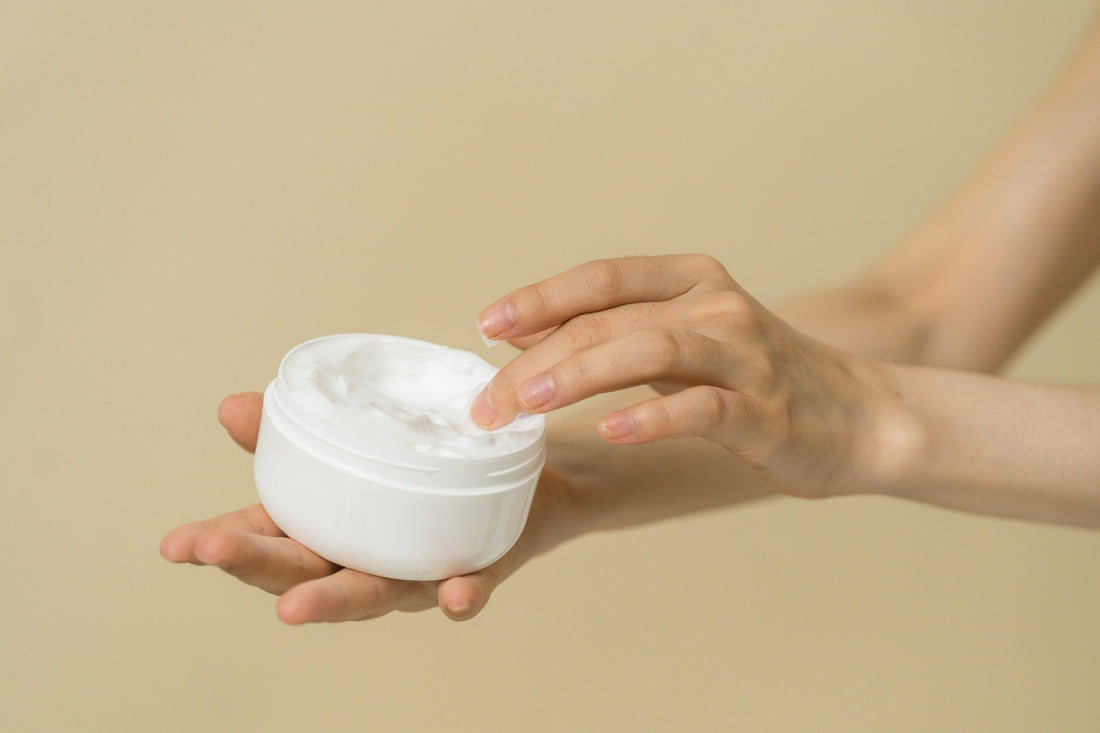
Carbomers in Your Skincare: Know Why This Microplastic is Harming Our Planet
Share
Our skincare knowledge is getting better each day, and by now, you are avoiding harmful ingredients like SLS, SLES, and parabens found in most products. These three ingredients are surfactants and preservatives that irritate the skin, and long-term use increases your cancer risk. But are you still using microplastics on your skin every day?
There are Microplastics Among Us
Microplastics are tiny polymers of five millimeters or less; in comparison, it is the size of a sesame seed. Microbeads are the most frequently used microplastic and are often promoted as a beneficial ingredient. Many exfoliants contain microbeads as an exfoliating agent, and these tiny plastic particles are used as fillers or emulsifiers. These tiny particles, barely visible to the naked eye, disrupt the environment and ocean life, also negatively impacting human health. One of the hidden microplastic in many beauty and skincare products is carbomer. Have you ever heard of this term before?
Carbomer: What It Is and What It Does
Carbomer is a synthetic polymer often used as a thickening agent in shampoos, shower gels, moisturizers, serums, and eye creams. It functions as a gelling agent, an emulsifier suspending insoluble solids in liquid, preventing the oil and water in your skincare products from separating. Carbomers absorb and hold water. When dispersed in water, they can swell up to 1000 times their initial volume giving skincare products a clear, gel-like consistency resulting in a smooth, silky feel to the gels, creams, and lotions.
Is Carbomer Dangerous for Your Skin?
Experts believe carbomers have a low risk of phototoxicity, photo-contact allergenicity, skin irritation, and sensitization. The carbomer is often regarded as a neutral ingredient with relatively low risks and works perfectly without a significant aversion to other ingredients. It is not a cancer-causing element and not linked to developmental or reproductive harm.
It seems nothing is wrong with carbomer, right?
The Innocent Carbomer is A Threat to Our Ocean
While carbomers are generally safe for our skin, they pose a serious threat to delicate marine life and the oceans. Similar to other microplastics, carbomers slide off your skin, down the drain, and into our oceans. Beat the Microbead states that carbomer is the second most prevalent microplastic detected in our registered items - number two on the list and appearing in 11% of the ingredient lists.
TAUW's research lists carbomer (polyacrylate) as a microplastic component. ECHA has also indicated that carbomer is a microplastic component on numerous occasions. Carbomer is thought to be detrimental to aquatic life. Once microplastics like carbomers get into the ocean, they are there for millions of years as they are not biodegradable.
Marine Life Consume Microplastics

Image source: reducereuserecycle.co.uk
The microplastics have a negative impact on marine life as these fish and other marine species swallow microscopic plastic particles. Microplastics have been found to affect growth, development, behavior, reproduction, and death in many aquatic species as they collect in their bodies and invade their cells. It impacts the ecosystem, including fish, crustaceans, and other marine animals part of the food chain, with humans at the top. Researchers have found microplastics in the muscle and organs of fish and other aquatic species, with mollusks being the highest. The fish are not just excreting these plastics, but the plastics migrate to different sections of the body, including the parts we eat - it comes full circle. The microplastics we dispose of come back into our bodies.
Fortunately, there are brands of cosmetics and personal care products free of microplastics. MONO Skincare is proud to be completely free of microplastics. All of our natural skincare products are made with clean, organic, and vegan ingredients, eliminating cheap plastic fillers and toxins. There are no microplastics in our sustainable skincare formulas; instead, we focus on hyper-concentrated skincare tablets enriched with prebiotics that dissolve with readily available water in your home. Packaged in a reusable glass bottle, you can purchase our tablet refill once the bottle is empty and refill the bottle—again, with water. From MONO Skincare’s formulation to packaging, no plastic waste gets to litter our precious ocean.
